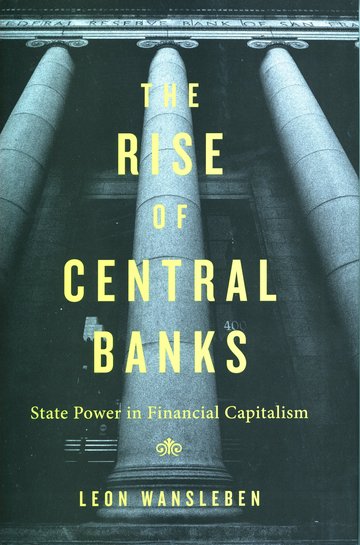How Will Capitalism End? Essays on a Failing System
Wolfgang Streeck
MPIfG Book
Abstract
Capitalism is in critical condition. Growth is giving way to secular stagnation, inequality is leading to instability, and confidence in the capitalist money economy has all but evaporated. In How Will Capitalism End?, Wolfgang Streeck, an observer of contemporary politics and economics, argues that capitalism’s shotgun marriage with democracy that began in 1945 is breaking up because the regulatory institutions restraining its advance have collapsed. After the final victory of capitalism over its enemies, there is no political agency capable of rebuilding them in sight. The capitalist system is stricken with at least five worsening disorders for which no cure is at hand: declining growth, oligarchy, starvation of the public sphere, corruption, and international anarchy. Wolfgang Streeck asks whether we are witnessing a long and painful period of cumulative decay: of intensifying frictions, of fragility and uncertainty, and of a steady succession of "normal accidents."
Contents
Introduction
Chapter 1
How Will Capitalism End?
Chapter 2
The Crises of Democratic Capitalism
Chapter 3
Citizens as Customers: Considerations on the New Politics of Consumption
Chapter 4
The Rise of the European Consolidation State
Chapter 5
Markets and Peoples: Democratic Capitalism and European Integration
Chapter 6
Heller, Schmitt and the Euro
Chapter 7
Why the Euro Divides Europe
Chapter 8
Comment on Wolfgang Merkel, ‘Is Capitalism Compatible with Democracy?’
Chapter 9
How to Study Contemporary Capitalism?
Chapter 10
On Fred Block, ‘Varieties of What? Should We Still Be Using the Concept of Capitalism?’
Chapter 11
The Public Mission of Sociology
Author
Wolfgang Streeck
Reviews
"Wolfgang Streeck's How Will Capitalism End? is an excoriating and timely critique of a system on its last legs [...] there are so many startling formulations of great analytic power in this book that it merits wide circulation in these troubled times."
Joe Gill, A Spanner in the Neoliberal Machine, Morning Star, 28 November 2016
"Streeck's title question – though never answered – opens a window onto the conflict between capitalism and democracy in the neoliberal era. That such a conflict exists is no surprise in Brazil, and still hidden to many in the United States, but a rude an inescapable shock to those who grew up with the comfortable illusions and utopian hopes of post-war Europe."
James Galbraith, author of "The End of Normal"
"The recent work of the German social scientist Wolfgang Streeck provides a powerful and salutary analysis of the recent history, and likely future trajectory, of capitalism. Building on his long-standing and highly influential writings on political economy, corporatism, and European integration, Streeck has produced a provocative series of interventions that incisively challenge the conventional wisdom about the global economic crisis and the travails of the eurozone."
Ben Jackson, Renewal
"Neoliberalism continues to delimit political choice across the globe yet it is clear that the doctrine is in severe crisis. In Wolfgang Streeck's powerful new book How Will Capitalism End? Streeck demonstrates that the maladies afflicting the world – from secular stagnation to rising violent instability – herald not just the decline of neoliberalism, but what may prove to be the terminal phase of global capitalism."
Paul Mason, author of "Postcapitalism"












